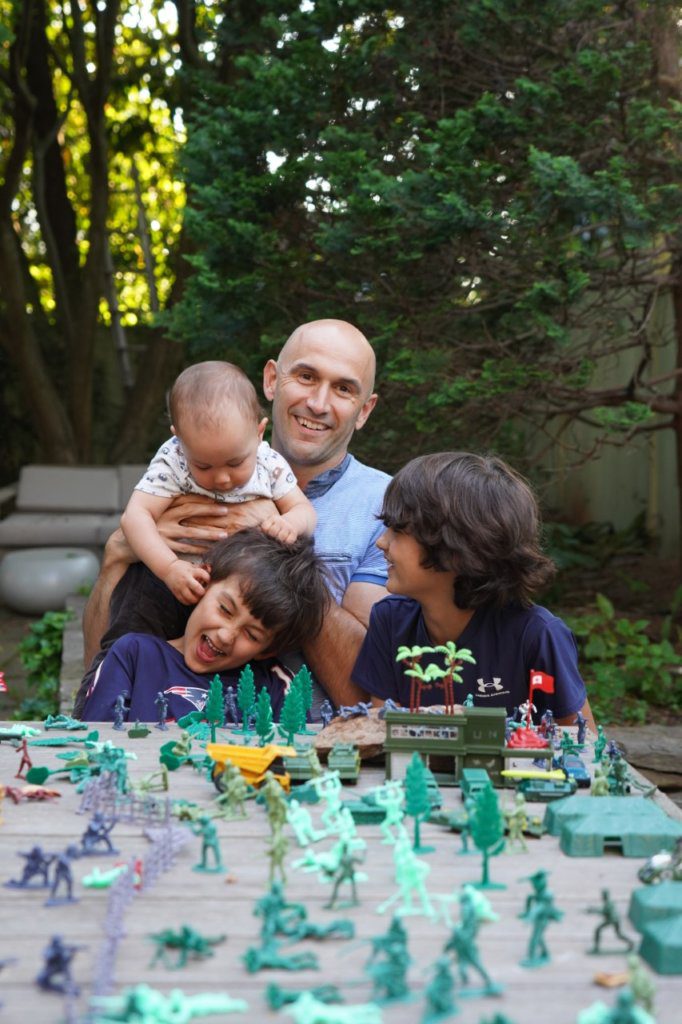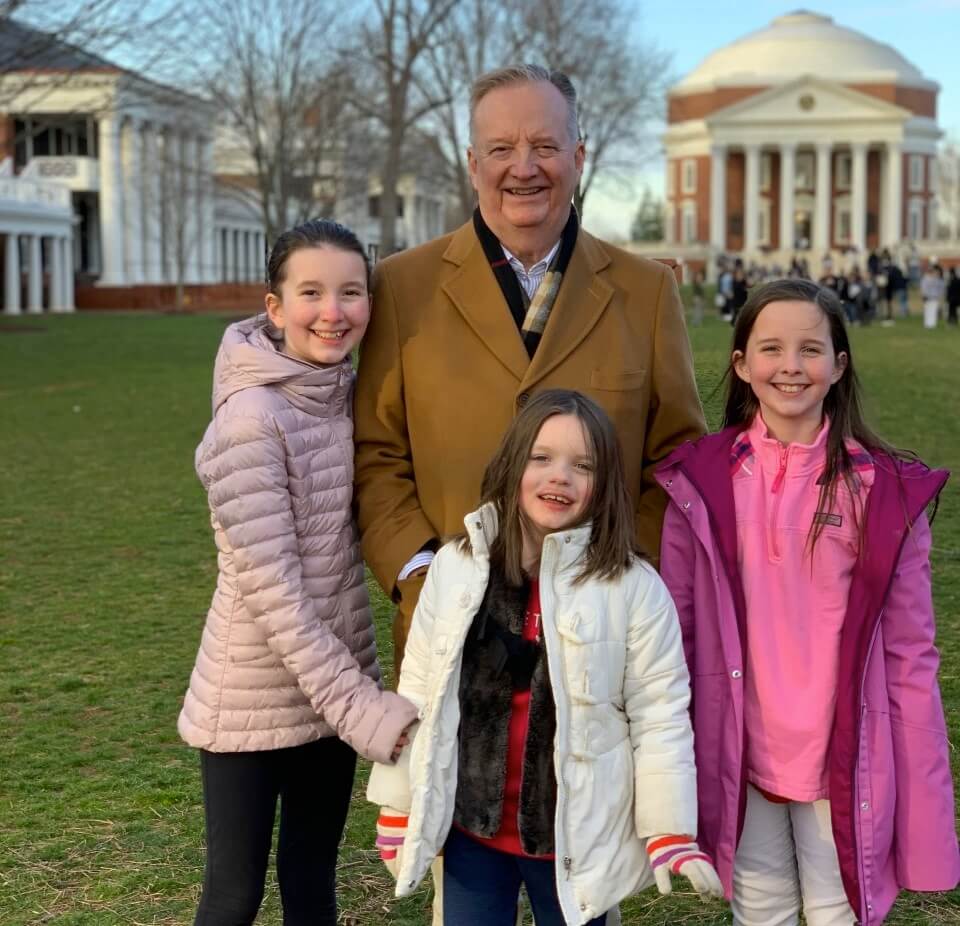Father’s Day 2020, Unlike Any Other
By • June 17, 2020 0 1521

This Sunday, June 21, is Father’s Day, the third Sunday of June, the day after the summer solstice — the longest day of the year.
But Father’s Day 2020 is also unquestionably unlike any other experienced by those living today. It comes amid a global pandemic in which more than 100,000 Americans have died (the majority of them men), an economic recession with millions unemployed (again, the majority of them men) and stay-at-home orders that have closed stores, offices, government buildings, parks, schools and daycare centers from coast to coast.
Here in Washington, D.C., on May 29, just as the city was about to cautiously celebrate its Phase One reopening, the soon-to-be nationwide protests triggered by the murder of George Floyd by Minneapolis police officers arrived. Thousands of protesters ignored social distancing and the wearing of masks. At times during the unrest, businesses were looted and vandalized — 57 in Georgetown. The following days saw stores and businesses along M Street and Wisconsin Avenue boarded up and desolate.
In these fraught days, weeks and months since mid-March, with more to come, the experience of fatherhood is being seen in a new light.
TIME COMMITMENT IS INTENSE
The “pandemic father” is finding that the time committed to being with his children is both overwhelmingly consuming and precious. Suddenly, since D.C. Mayor Muriel Bowser’s March 16 stay-at-home order, every family has had to get used to being confined at home — eating, playing, working and spending every evening together. Family members share and at times struggle for computer time to do everything remotely, from distance learning and taking part in virtual meetings to getting work and homework done, shopping and socializing.
Computer sharing among parents and children has been stressful for parents used to being able to work on their own. Many have had to make arrangements for extra devices and WiFi, while paying more attention to internet privacy and content issues. For those with smaller children, it has meant being on hand almost constantly, monitoring, guiding and helping as children spend their school hours on distance learning.
On the other hand, in some households, children are becoming tired of screen time. “At times, we almost had to bribe our 5-year-old with a treat or a game if he would watch TV for a half-hour more so we could get something done,” said Sebastian Kwakkenbos with a chuckle.
Getting out of the house with the kids every day seems to have become a regular routine for all the dads interviewed by The Georgetowner.
“Being outdoors is visceral to me,” said Yuri Horwitz, co-founder of a solar energy company and the father of three boys, ages 8, 5 and 1. “I am used to running and being outdoors every day, even while I am used to working 60 to 80 hours in the company.” Now much of that outdoor time is shared with his kids, especially during times when his wife, who works on climate issues, has to travel.
Apart from the exercise (both Horwitz and his wife were competitive runners in college, where they met), the father of three spends a lot of quality time outside with his kids. “They ask wonderful unexpected questions,” he said. “Once the shutdown is over, I need to figure out a way to reschedule and delegate my work so I can spend more time with the kids than I did before.”
But scheduling that time, even now, is easier said than done. “Right now, the time needed is so much more than I thought,” said Kwakkenbos. He and his wife, who runs an education business, try to divide their time equally between in-person parenting and their full-time careers.
“At first, we thought one of us would spend mornings and the other afternoons with our on, focusing on our special skills in math and literary arts,” Kwakkenbos told The Georgetowner. Given distractions and attention spans, it didn’t work out that way. Now they each take two days — one Mondays and Wednesdays, the other Tuesdays and Thursdays — to devote to full-time teaching and parenting.
The experience became almost overwhelming when the whole family was stricken with COVID-19 in March. While they did not have to be hospitalized, they all struggled with the illness. Now that they are testing negative, they can tease each other about who had it worse.
Fatherhood has many meanings for the Rev. Tim Cole, rector of Georgetown’s Christ Church on O Street, known to hundreds of Georgetowners as Father Tim. He ministers to them as his own father did in Scotland, where Cole followed in his father’s footsteps as a pastor and a military chaplain.
Cole underwent a particular trial in March when he became the first person in the District to be diagnosed with COVID-19. Hospitalized, he was very sick for several weeks. But after several ups and downs, he was able to return to the rectory. Now, two weeks before Father’s Day, he says he is fully recovered. Neither his wife nor his 23-year-old son, who has been residing with them, ever tested positive. And the togetherness has been a blessing.
“The past year with my adult son at home has been a gift, getting to know him and have him there. While hundreds call me ‘Father,’ my son and daughter are the only ones in the world who call me ‘Dad.’
THE PROTESTS: TELLING THE KIDS WHAT IS GOING ON
As if the virus, the shutdown and the distance learning weren’t enough, the challenges of fatherhood rose to new heights when the District and Georgetown exploded in Black Lives Matter protests, along with the attacks on Georgetown businesses. How is a father to explain it all?
“We all want our children to enjoy the innocence of childhood as long as possible. All parents want to shield our children from evil and violence and hurt. But now it is all around,” said Horwitz. “It is all so age-andstage-dependent how much to tell them, show them and have them experience what is going on.”
“There are no right answers,” Horwitz said. He tries to keep it light — not as in funny but as in keeping it simple — with explanations focused on compassion and humility, letting the kids ask the questions as he “immerses” them in the reality of what is going on.
He took them to the Lincoln Memorial during the peaceful protests on Saturday, June 6. They shared ice cream, talked with some of the National Guard troops and watched and walked with some of the protestors. “Things happen to people and some get angry,” he told them when they asked why everyone was there. “So they are speaking out.”
“Things can be so easily misconstrued,” said Father Tim. “It is a time to be sensitive. Families and parenting cultures are so varied. Relationships even between fathers and daughters and fathers and sons are different. What is so lovely for me personally in these fraught days is to be with, have long conversations with and get to know my son as an adult. I will look back on these days as precious indeed.”

John Korsmo and his daughters Mattie, Genevieve and Ally. Courtesy Korsmo family

Tom Strike with children Ryan, Jordan and Katelyn — and with wife and mother Sarah Ford Strike. Courtesy Strike family

